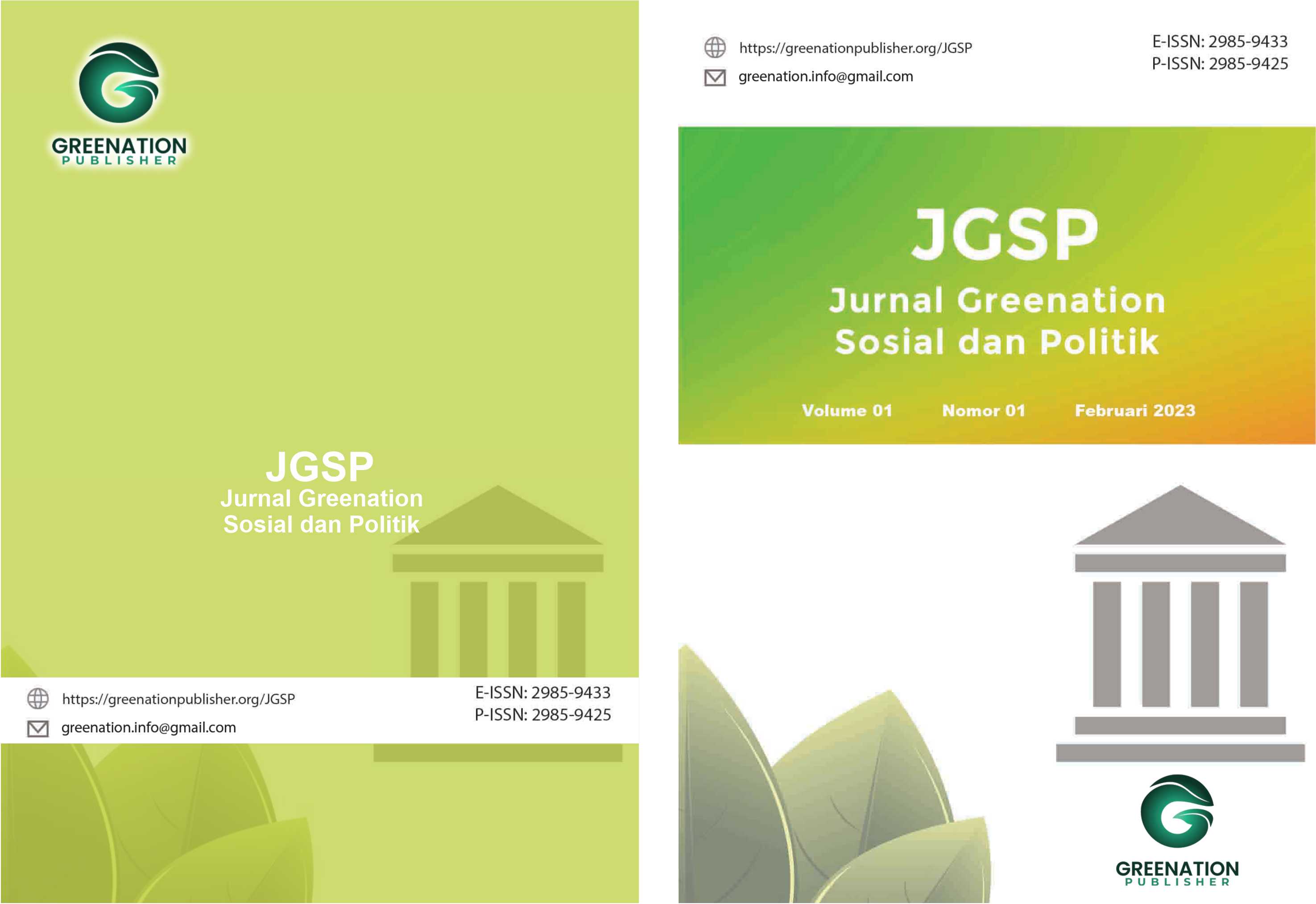Legal Protection for Crypto Asset Investors in Indonesia Within an Incomprehensive Regulatory Framework and its Implications for Legal Certainty
DOI:
https://doi.org/10.38035/jgsp.v3i3.433Keywords:
legal protection, crypto assets, legal certainty, investor, digital regulation, Financial Services Authority (OJK), Commodity Futures Trading Regulatory Agency (Bappebti)Abstract
The development of blockchain technology has given rise to crypto assets as a new investment instrument that has attracted the attention of the Indonesian public in recent years. However, the rapid growth of crypto investments has not been accompanied by a comprehensive regulatory framework, creating vulnerabilities to various legal, economic, and technical risks that could harm investors. This study aims to analyze the form of legal protection for crypto asset investors in Indonesia within the context of a still-limited regulatory framework, as well as to examine its implications for legal certainty in the digital asset sector. The research method used is a normative juridical approach, with secondary data sources in the form of laws and regulations, legal literature, and international comparisons. The analysis shows that legal protection for investors remains administrative and partial, as reflected in regulations such as Law No. 4 of 2023 on the Development and Strengthening of the Financial Sector (PPSK Law), Bappebti Regulation No. 8 of 2021, and Government Regulation No. 5 of 2021. The absence of specific dispute resolution mechanisms, fund return guarantees, and protection against market manipulation exacerbates the legal uncertainty faced by investors. Comparative studies with other countries such as Singapore, Japan, and the European Union highlight the importance of establishing an integrated regulatory framework that emphasizes consumer protection and strong oversight. This study recommends the drafting of a specific law on digital assets, expansion of the Financial Services Authority (OJK)’s authority, as well as the creation of dispute resolution mechanisms and investment insurance schemes to enhance legal certainty and public trust in the crypto asset sector.
References
Ahmad Junaidi, S. E. (2024). Keuangan Digital Strategi Investasi dan Perencanaan di Era 4.0. Padang: Takaza Innovatix Labs.
Anam, M. A. (2024). Dinamika Regulasi Pasca Undang-Undang Cryptocurrency 2023 Dan Dampaknya Pada Performa Pasar di Indonesia. Jurnal Ilmu Hukum, Humaniora dan Politik (JIHHP), 5(1), 23-29.
Arkas Viddy, S. E. (2025). Crypto & Blockchain: Masa Depan Keuangan Global. Padang: Takaza Innovatix Labs.
Atmojo, R. N. (2023). Upaya Perlindungan Hukum Bagi Para Konsumen Pemegang Aset Kripto di Indonesia. Jurnal Hukum To-Ra: Hukum Untuk Mengatur Dan Melindungi Masyarakat, 9(2), 254-276.
Baiquni, M. I. (2023). Eksistensi Cryptocurrency dalam Pembentukan Central Bank Digital Currency di Indonesia: Perspektif Ius Constituendum. Media Iuris, 6(3), 435-440.
Hasani, M. N. (2022). Analisis cryptocurrency sebagai alat alternatif dalam berinvestasi di indonesia pada mata uang digital bitcoin. Jurnal Ilmiah Ekonomi Bisnis, 8(2), 329-344.
Herman, H. H. (2024). Kerangka Sistem Aset Digital Pada Infrastruktur Blockchain Yang Sejalan Dengan Syariah Islam. JIPI (Jurnal Ilmiah Penelitian dan Pembelajaran Informatika), 9(2), 768-781.
Jaya, A. S. (2022). Legalitas Cryptocurrency di Indonesia. Pekalongan: Nasya Expanding Management.
Khunainah, I. I. (2024). Pembuktian Kepemilikan Aset Investasi dengan Trading Kripto di Indonesia. Pekalongan: Nasya Expanding Management.
Muhammad, R. F. (2023). Legalitas penerapan central bank digital currency (CBDC) di Indonesia. Jurnal USM Law Review, 6(3), 913-930.
Nugrahaningsih, W. &. (2024). Analisis Yuridis Pemanfaatan Aset Kripto untuk Kepentingan Investasi dan Transaksi di Indonesia. Sosial Simbiosis: Jurnal Integrasi Ilmu Sosial dan Politik, 1(2), 104-115.
Nurullia, S. (2021). Menggagas pengaturan dan penerapan central bank digital currency di Indonesia: Bingkai ius constituendum. Journal of Judicial Review, 23(2), 275-290.
Pawestri, A. Y. (2025). Analisa Legalitas dan Potensi Kejahatan Financial pada Penggunaan Cryptocurrency di Indonesia. National Multidisciplinary Sciences, 4(3), 111-122.
Pramitasari, T. D. (2025). Masa Depan Perbankan: Transformasi Digital Menuju Bank 4.0. Yogyakarta: Deepublish.
Rachmawati, M. H. (2022). Penggunaan Mata Uang Asing Dalam Praktik Jual-Beli Di Indonesia Menurut Undang-Undang Nomor 7 Tahun 2011 Tentang Mata Uang. PALAR (Pakuan Law Review), 8(4), 12-22.
Siboro, C. C. (2024). Peran Otoritas Jasa Keuangan dalam Pengawasan Transaksi Kripto di Indonesia: Tinjauan Regulasi dan Tantangannya. Jurnal Multidisiplin Ilmu Akademik, 1(6), 92-102.
Sihombing, S. N. (2021). Analisis Fundamental Cryptocurrency terhadap Fluktuasi Harga: Studi Kasus Tahun 2019-2020. Jurnal Akuntansi, Keuangan dan Manajemen, 2(3), 213-224.
Sirait, Y. D. (2024). Blockchain dalam Dunia Keuangan: Teknologi Desentralisasi untuk Transaksi Aman. Circle Archive, 1(6), 1-8.
Suryawijaya, T. W. (2023). Memperkuat Keamanan Data melalui Teknologi Blockchain: Mengeksplorasi Implementasi Sukses dalam Transformasi Digital di Indonesia. Jurnal Studi Kebijakan Publik, 2(1), 55-68.
Susanto, A. S. (2025). Cryptocurrency Era 5.0: Revolusi Keuangan Digital. Semarang: SIEGA Publisher.
Yazidillah, M. A. (2023). Cryptocurrency Studi Tinjauan Pustaka Analisis Risiko Cryptocurrency Sebagai Alat untuk Berinvestasi. Jurnal Sosial Teknologi, 3(12), 989-995.
Downloads
Published
How to Cite
Issue
Section
License
Copyright (c) 2025 Hendricka R A Bahtera, Joko Setiono, Iza Fadri

This work is licensed under a Creative Commons Attribution 4.0 International License.
Hak cipta :
Penulis yang mempublikasikan manuskripnya di jurnal ini menyetujui ketentuan berikut:
- Hak cipta pada setiap artikel adalah milik penulis.
- Penulis mengakui bahwa Jurnal Greenation Sosial dan Politik (JGSP) berhak menjadi yang pertama menerbitkan dengan lisensi Creative Commons Attribution 4.0 International (Attribution 4.0 International CC BY 4.0) .
- Penulis dapat mengirimkan artikel secara terpisah, mengatur distribusi non-eksklusif manuskrip yang telah diterbitkan dalam jurnal ini ke versi lain (misalnya, dikirim ke repositori institusi penulis, publikasi ke dalam buku, dll.), dengan mengakui bahwa manuskrip telah diterbitkan pertama kali di JGSP.
























